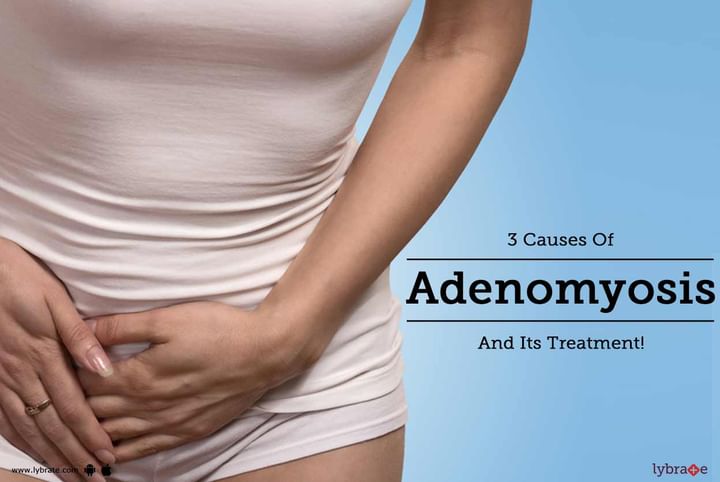3 Causes Of Adenomyosis And Its Treatment!
Adenomyosis is a condition which occurs when the muscle wall of the uterus is broken by the endometrium lining. You experience pressure in the lower abdomen, menstrual bloating and cramps, before the onset of menstrual periods, resulting in heavy bleeding during the periods. This disorder is not life threatening but is known to cause pain and heavy bleeding.
Symptoms-
The symptoms of adenomyosis are severe pain during periods, prolonged periods and pressure in the abdominal area. You may also experience heavy bleeding during the periods and may also experience intense pain. Sex may be very painful as well. The lower abdomen might feel tender and bigger; this occurs when the size of the uterus increases in this particular condition.
Causes-
The exact cause of this disorder is not yet ascertained. However, certain possible causes could be:
- Congenital Defect: In this case, the condition is known to occur from birth wherein the endometrial tissue grows on the uterine muscle wall during the fetus formation.
- Invasive Growth of Tissues: This is said to occur when endometrial cells invade the uterus lining, leading to adenomyosis. This can also be triggered by a C-section operation.
- Inflammation During Childbirth: During the childbirth process, inflammation may occur in the lining of the uterus leading to this disorder.
In addition to the possible cause, there are certain risk factors which increase the risks of the disorder, such as:
-
Aging
-
Giving birth to a child
-
Surgery related to the uterus such as a C-section
Treatment-
Once you reach menopause, this disorder tends to subside. So depending on how close you are to menopause, the treatment is designed accordingly. The various treatments for adenomyosis are –
-
Anti-inflammatory Medications: If you are nearing menopause, then anti-inflammatory medications will be administered. This helps in reducing pain and the heavy blood flow.
-
Hormone Medications: Hormone medications such as hormone patches can also help with the bleeding and pain.
-
Hysterectomy: If the pain turns intense, then the doctor may recommend hysterectomy, a surgery to remove the uterus. In case you have a concern or query you can always consult an expert & get answers to your questions!



+1.svg)
